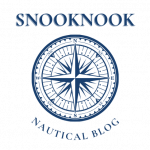Selling consulting services in traditional sectors requires a strategic approach that aligns expertise with established business needs. When navigating these more conservative markets, consultants must adapt their tactics to address specific industry challenges while demonstrating clear value propositions that resonate with decision-makers accustomed to conventional business practices.
Understanding the traditional sector landscape
Traditional sectors often operate with established protocols and decision-making processes that differ significantly from more agile industries. Navigating this landscape requires consultants to master both industry-specific knowledge and the unique cultural dynamics that govern business relationships in these environments.
Identifying key decision-makers in established industries
Mapping the power structure within traditional organizations is fundamental to sales success. Unlike newer industries with flatter hierarchies, established sectors typically maintain multi-layered approval processes. Building trust across various stakeholders becomes crucial, as decisions rarely rest with a single individual. When targeting these organizations, many consultants from Consebro and similar firms find success by connecting with both formal and informal influencers who can champion services internally. Creating client relationships at multiple levels helps protect against turnover while providing deeper insights into organizational needs.
Recognizing common pain points in traditional business models
Traditional sectors face unique challenges that create opportunities for consultants who understand them. These often include adapting to market disruptions, managing regulatory compliance, improving operational efficiency, and modernizing without abandoning core business strengths. Many established businesses struggle with digital transformation while maintaining their legacy systems. The most successful consulting sales approaches involve starting with smaller engagements that address specific pain points before proposing comprehensive solutions. This gradual approach builds credibility and trust while allowing firms to showcase their expertise in a low-risk environment.
Building Credibility and Trust with Traditional Clients
Selling consulting services to traditional sectors requires a strategic approach focused on establishing credibility and fostering long-term client relationships. Traditional industries often value proven expertise and tangible results over flashy presentations. By taking a methodical approach to demonstrating your value, you can position your consulting services as an essential business investment rather than an optional expense.
Successful consultants in traditional markets understand that client acquisition isn't simply about making sales calls—it's about creating meaningful connections that demonstrate deep industry knowledge and a genuine commitment to client success. Research shows that 41% of new consulting clients come from referrals, highlighting the importance of reputation in these established sectors.
Demonstrating relevant industry expertise through case studies
Case studies serve as powerful tools for showcasing your consulting firm's capabilities and past successes. When selling to traditional sectors, create detailed case studies that outline specific challenges you've addressed, methodologies applied, and measurable results achieved for similar organizations. Each case study should tell a compelling story of transformation while highlighting your specialized knowledge.
Begin by identifying your target market within traditional industries. Develop case studies that speak directly to common pain points faced by these organizations. For instance, if targeting manufacturing firms, showcase how your strategy consulting helped optimize production processes or reduce operational costs by specific percentages.
Beyond presenting results, case studies should demonstrate your understanding of industry-specific regulations, market dynamics, and business challenges. This approach proves far more effective than complex sales presentations that fail to connect with the practical concerns of traditional sector decision-makers. When conducting sector surveys and analyses, incorporate findings into your case studies to provide market context that resonates with potential clients.
Many successful consultants recommend starting with small, easily accepted services to build trust before offering more comprehensive solutions. Document these initial engagements as mini case studies, showing the progression from targeted interventions to broader strategic partnerships.
Leveraging testimonials and referrals from similar organizations
Testimonials and referrals function as powerful trust signals when selling consulting services to traditional sectors. Client testimonials provide social proof of your capabilities from sources your prospects already respect and trust. When prospective clients see that you've successfully served organizations similar to theirs, perceived risk decreases substantially.
Despite being crucial for business development, many consulting firms lack a structured referral strategy. Creating a systematic approach to gathering and sharing testimonials can significantly enhance your sales process. After completing successful projects, request specific testimonials highlighting the business impact of your work. Frame these requests professionally, making it easy for clients to provide meaningful feedback.
Building relationships with multiple stakeholders within client organizations multiplies your referral opportunities. Rather than limiting contact to a single decision-maker, develop connections throughout the organization. This approach ensures long-term relationships that transcend individual personnel changes and creates multiple advocates for your services.
When using testimonials in your sales process, match them carefully to prospect concerns. If a manufacturing client worries about regulatory compliance, share testimonials from similar organizations where you've successfully navigated complex regulatory landscapes. This targeted approach demonstrates relevant expertise rather than generic capabilities.
For consultants without websites, testimonials can be incorporated into proposal documents, presentation materials, and direct communications. Client reviews and thank-you letters can be repurposed as powerful sales tools when approaching new prospects in traditional sectors.
Remember that building trust requires consistent demonstration of value. Call existing clients regularly to discover emerging needs, stay informed about market disruptions that might require consulting support, and proactively identify solutions before competitors enter the space. This client-focused approach naturally generates new referrals while strengthening existing relationships.




